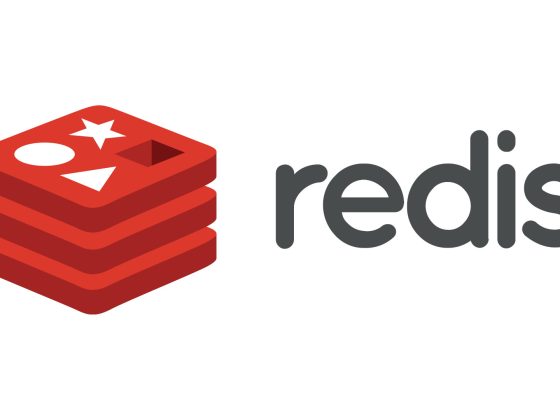In June, Apple introduced Swift System, a new library for Apple platforms that provides idiomatic interfaces to system calls and low-level currency types. I’m excited to announce that we’re open-sourcing System and adding Linux support! Our vision is for System to eventually act as the single home for low-level system interfaces for all supported Swift platforms.
From our partners:
Goodbye Imported C Interfaces
Most operating systems today support some flavor of system interfaces written in C that have existed for decades. While it is possible to use these APIs directly from Swift, these weakly-typed system interfaces imported from C can be error-prone and unwieldy. For example, the open system call (available on UNIX-like operating systems such as Linux and Apple platforms) imports as a pair of global functions:
<span class="kd">func</span> <span class="nf">open</span><span class="p">(</span><span class="n">_</span> <span class="nv">path</span><span class="p">:</span> <span class="kt">UnsafePointer</span><span class="o"><</span><span class="kt">CChar</span><span class="o">></span><span class="p">,</span> <span class="n">_</span> <span class="nv">oflag</span><span class="p">:</span> <span class="kt">Int32</span><span class="p">)</span> <span class="o">-></span> <span class="kt">Int32</span>
<span class="kd">func</span> <span class="nf">open</span><span class="p">(</span><span class="n">_</span> <span class="nv">path</span><span class="p">:</span> <span class="kt">UnsafePointer</span><span class="o"><</span><span class="kt">CChar</span><span class="o">></span><span class="p">,</span> <span class="n">_</span> <span class="nv">oflag</span><span class="p">:</span> <span class="kt">Int32</span><span class="p">,</span> <span class="n">_</span> <span class="nv">mode</span><span class="p">:</span> <span class="n">mode_t</span><span class="p">)</span> <span class="o">-></span> <span class="kt">Int32</span>
These weakly-typed functions suffer from several shortcomings and fail to utilize the expressivity and type safety of Swift:
- File descriptors, alongside options, commands, errno, and other values, are imported as ordinary
Int32s. - The
oflagargument is actually a logical OR-ing of exactly one file access mode and any number of flags, but this is not captured in the type ofoflag. - Callers of
openhave to remember to check for a negative return value indicating an error, and if so check the value of the global variableerrnoto know what error occurred. Additionally, some system calls may be canceled if a signal occurred, requiring callers to remember to write a loop around such calls checking forEINTRerrors. - File paths are unmanaged pointers, and if they are derived from a managed object (e.g.
Array<CChar>), then callers must ensure that array is always null-terminated.
None of these semantic rules are captured in the API’s signature, preventing the programming language from guiding the user towards correct usage of the API.
Hello Idiomatic Swift Interfaces
The System module brings various language features to bear to improve expressivity and eliminate these opportunities for error. For example, System defines the open system call as a static function with defaulted arguments in the FileDescriptor namespace:
<span class="kd">extension</span> <span class="kt">FileDescriptor</span> <span class="p">{</span>
<span class="c1">/// Opens or creates a file for reading or writing.</span>
<span class="c1">///</span>
<span class="c1">/// - Parameters:</span>
<span class="c1">/// - path: The location of the file to open.</span>
<span class="c1">/// - mode: The read and write access to use.</span>
<span class="c1">/// - options: The behavior for opening the file.</span>
<span class="c1">/// - permissions: The file permissions to use for created files.</span>
<span class="c1">/// - retryOnInterrupt: Whether to retry the open operation</span>
<span class="c1">/// if it throws `Errno.interrupted`.</span>
<span class="c1">/// The default is `true`.</span>
<span class="c1">/// Pass `false` to try only once and throw an error upon interruption.</span>
<span class="c1">/// - Returns: A file descriptor for the open file</span>
<span class="c1">///</span>
<span class="c1">/// The corresponding C function is `open`.</span>
<span class="kd">public</span> <span class="kd">static</span> <span class="kd">func</span> <span class="nf">open</span><span class="p">(</span>
<span class="n">_</span> <span class="nv">path</span><span class="p">:</span> <span class="kt">FilePath</span><span class="p">,</span>
<span class="n">_</span> <span class="nv">mode</span><span class="p">:</span> <span class="kt">FileDescriptor</span><span class="o">.</span><span class="kt">AccessMode</span><span class="p">,</span>
<span class="nv">options</span><span class="p">:</span> <span class="kt">FileDescriptor</span><span class="o">.</span><span class="kt">OpenOptions</span> <span class="o">=</span> <span class="kt">FileDescriptor</span><span class="o">.</span><span class="kt">OpenOptions</span><span class="p">(),</span>
<span class="nv">permissions</span><span class="p">:</span> <span class="kt">FilePermissions</span><span class="p">?</span> <span class="o">=</span> <span class="kc">nil</span><span class="p">,</span>
<span class="nv">retryOnInterrupt</span><span class="p">:</span> <span class="kt">Bool</span> <span class="o">=</span> <span class="kc">true</span>
<span class="p">)</span> <span class="k">throws</span> <span class="o">-></span> <span class="kt">FileDescriptor</span>
<span class="p">}</span>
When one compares this version of open to the original version from C, several significant differences stand out:
Systempervasively uses raw representable structs and option sets. These strong types help catch mistakes at compile time and are trivial to convert to and from the weaker C types.- Errors are thrown using the standard language mechanism and cannot be missed. Further, all system calls interruptible by a signal take a defaulted-true
retryOnInterruptargument, causing them to retry on failure. When combined, these two changes dramatically simplify error and signal handling. FilePathis a managed, null-terminated bag-of-bytes that conforms toExpressibleByStringLiteral— far safer to work with than aUnsafePointer<CChar>.
The result is code that reads and behaves like idiomatic Swift. For example, this code creates a file path from a string literal and uses it to open and append to a log file:
<span class="k">let</span> <span class="nv">message</span><span class="p">:</span> <span class="kt">String</span> <span class="o">=</span> <span class="s">"Hello, world!"</span> <span class="o">+</span> <span class="s">"</span><span class="se">\n</span><span class="s">"</span>
<span class="k">let</span> <span class="nv">path</span><span class="p">:</span> <span class="kt">FilePath</span> <span class="o">=</span> <span class="s">"/tmp/log"</span>
<span class="k">let</span> <span class="nv">fd</span> <span class="o">=</span> <span class="k">try</span> <span class="kt">FileDescriptor</span><span class="o">.</span><span class="nf">open</span><span class="p">(</span>
<span class="n">path</span><span class="p">,</span> <span class="o">.</span><span class="n">writeOnly</span><span class="p">,</span> <span class="nv">options</span><span class="p">:</span> <span class="p">[</span><span class="o">.</span><span class="n">append</span><span class="p">,</span> <span class="o">.</span><span class="n">create</span><span class="p">],</span> <span class="nv">permissions</span><span class="p">:</span> <span class="o">.</span><span class="n">ownerReadWrite</span><span class="p">)</span>
<span class="k">try</span> <span class="n">fd</span><span class="o">.</span><span class="n">closeAfter</span> <span class="p">{</span>
<span class="n">_</span> <span class="o">=</span> <span class="k">try</span> <span class="n">fd</span><span class="o">.</span><span class="nf">writeAll</span><span class="p">(</span><span class="n">message</span><span class="o">.</span><span class="n">utf8</span><span class="p">)</span>
<span class="p">}</span>
A Multi-platform Library
System is a multi-platform library, not a cross-platform one. It provides a separate set of APIs and behaviors on every supported platform, closely reflecting the underlying OS interfaces. A single import will pull in the native platform interfaces specific for the targeted OS.
Our immediate goal is to simplify building cross-platform libraries and applications such as SwiftNIO and the Swift Package Manager. System does not eliminate the need for #if os() conditionals to implement cross-platform abstractions, but it does make it safer and more expressive to fill out the platform-specific parts.
What’s Next?
System is only in its infancy—it currently includes a small number of system calls, currency types, and convenience functionality. As part of the effort to increase the API coverage, we’ll be working to adopt System in the Swift Package Manager. This will include enhancements to FilePath and adding support for the recently announced Swift on Windows.
There’s a ton of exciting work left to do. System (especially the forthcoming Windows support!) is a fantastic opportunity to get involved in the Swift project and help it grow into a strong, vibrant, cross-platform ecosystem.
Get Involved
Your experience, feedback, and contributions are greatly encouraged!
- Get started by trying out the System package on GitHub,
- Discuss the library and get help in the Swift System forum,
- Open an issue with problems you find or ideas you have for improvements,
- And as always, pull requests are welcome!
Questions?
Please feel free to ask questions about this post in the associated thread on the Swift forums.
For enquiries, product placements, sponsorships, and collaborations, connect with us at [email protected]. We'd love to hear from you!
Our humans need coffee too! Your support is highly appreciated, thank you!








